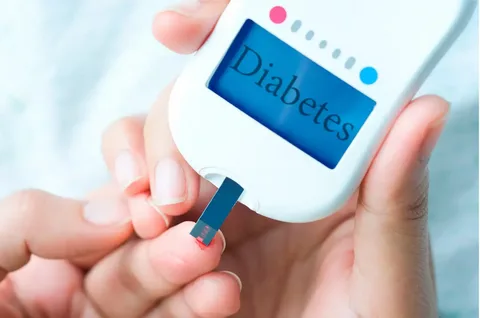Understanding the Critical Role of Primary Care in Diabetes Management
Diabetes, a chronic and progressive condition, affects millions globally and is one of the leading causes of morbidity and mortality in the United States. Yet, the cornerstone of effective diabetes care doesn’t solely rest on specialists—it begins with consistent, high-quality Primary Care. At LocalMd, we emphasize that comprehensive follow-up with your primary care provider can dramatically influence your long-term health outcomes.
Primary Care providers serve as the first line of defense, ensuring early detection, personalized care plans, ongoing monitoring, and preventive strategies. Without frequent and focused follow-ups, diabetes can progress silently, leading to severe complications such as kidney failure, cardiovascular disease, neuropathy, and vision loss.
Early Diagnosis and Intervention Through Primary Care
Regular Primary Care visits enable early identification of prediabetes and undiagnosed diabetes. Providers are trained to recognize subtle symptoms and risk factors such as weight gain, fatigue, frequent urination, or family history of diabetes. Using routine blood tests like fasting glucose and A1C levels, they can detect abnormalities long before symptoms escalate.
These early interventions are crucial. Studies show that patients engaged with primary care physicians are more likely to receive timely diagnoses, allowing for earlier implementation of lifestyle modifications and medications that may delay or even prevent full-blown diabetes.
Personalized Treatment Plans for Better Glycemic Control
One of the most significant advantages of frequent follow-ups is the development of personalized treatment plans. Every patient presents differently—what works for one may not work for another. Through continuous monitoring and patient engagement, Primary Care providers at LocalMd adjust medications, recommend specific lifestyle changes, and address comorbidities that often accompany diabetes like hypertension and high cholesterol.
Moreover, primary care teams coordinate with endocrinologists, nutritionists, and other specialists, creating a unified care approach that addresses the disease holistically.
Monitoring and Managing Long-Term Complications
Diabetes is not just about elevated blood sugar—it affects nearly every system in the body. Follow-up visits allow primary care providers to track and manage:
-
Kidney function through regular urine microalbumin tests and serum creatinine levels
-
Vision health via annual referrals for retinal exams
-
Neuropathy by conducting foot exams and discussing nerve-related symptoms
-
Cardiovascular health by managing lipid profiles, blood pressure, and smoking cessation strategies
Through proactive screenings and evaluations, Primary Care providers can delay or entirely prevent many of these complications.
Medication Adherence and Side Effect Management
Many diabetic patients struggle with medication adherence due to complex regimens or unwanted side effects. Regular check-ins with a trusted primary care provider help ensure that patients understand the importance of their medications, use them correctly, and can discuss any adverse effects.
When necessary, providers can adjust prescriptions to better suit the patient’s needs, improving both adherence and clinical outcomes.
Behavioral and Lifestyle Counseling
Managing diabetes effectively requires more than just medications—it demands significant lifestyle changes. Primary Care teams are essential in supporting these changes through:
-
Nutritional counseling: Guidance on diet plans that regulate glucose levels
-
Exercise recommendations: Strategies to incorporate physical activity into daily routines
-
Mental health support: Addressing diabetes-related anxiety, depression, or burnout
This ongoing support is crucial. Patients are more likely to adopt and sustain healthy habits when they have a consistent healthcare advocate guiding them.
Vaccinations and Preventive Care
Diabetes weakens the immune system, making individuals more susceptible to infections. Regular visits to your primary care provider ensure you stay up-to-date on critical vaccinations such as:
-
Influenza
-
Pneumococcal
-
Hepatitis B
-
COVID-19
These preventive measures reduce hospitalizations and improve overall quality of life for diabetic patients.
Data Tracking and Technological Integration
Today’s Primary Care settings integrate advanced technology for real-time health monitoring. Through electronic medical records (EMRs), patient portals, and connected glucose monitors, providers can keep a pulse on your health between visits.
Patients using continuous glucose monitors (CGMs) can upload their data remotely, allowing their provider to adjust treatment plans more responsively. This level of oversight fosters accountability, encourages self-management, and catches issues early.
Bridging Gaps in Underserved Communities
Many underserved populations suffer from higher rates of diabetes due to limited access to specialists and poor healthcare infrastructure. Primary Care fills this gap by offering:
-
Affordable care options
-
Culturally sensitive communication
-
Bilingual staff
-
Telehealth services for increased accessibility
At LocalMd, we are committed to ensuring equitable healthcare access for all, especially those in high-risk demographics.
Why You Shouldn’t Skip Your Primary Care Appointments
Skipping follow-up appointments might seem harmless—especially if you’re feeling okay. However, diabetes is a silent disease; damage occurs even without symptoms. Delayed follow-up increases the risk of:
-
Poor glycemic control
-
Missed medication adjustments
-
Unchecked progression of complications
-
Hospitalizations and emergency care
Your Primary Care physician doesn’t just react to problems—they help prevent them.
Real-Life Outcomes Backed by Research
Data from numerous studies confirm that regular primary care follow-ups for diabetic patients result in:
-
Lower A1C levels
-
Fewer hospital visits
-
Improved patient satisfaction
-
Reduced overall healthcare costs
A study published in the Journal of General Internal Medicine found that patients with consistent primary care contact had significantly better control over their diabetes compared to those who only saw specialists sporadically. Read more here to understand the long-term impacts in chronic disease management following regular primary care .
Conclusion: Your Primary Care Provider Is Your Diabetes Lifeline
Effective diabetes care is continuous, coordinated, and centered on prevention. While specialists have their place, Primary Care follow-ups serve as the critical touchpoint for sustained health. From diagnosis to daily management, your primary care provider helps you stay ahead of complications, understand your body, and live a healthier, longer life.
At LocalMd, we take pride in offering comprehensive, compassionate, and personalized care for diabetic patients in the Maspeth Queens community and beyond. Your health journey deserves dedicated, long-term attention—don’t leave it to chance.




